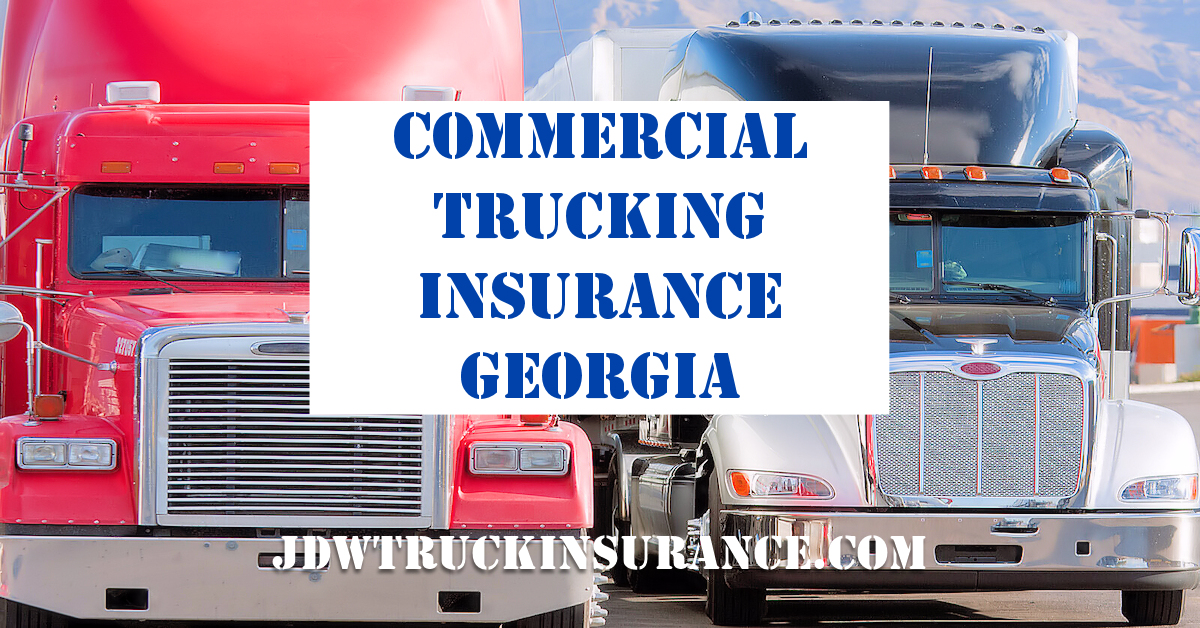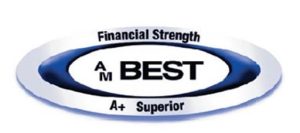Trucking Insurance for New Authority Acworth, Georgia
New Authority Truck Insurance Georgia
Commercial truck insurance Georgia. Trucking Insurance for New Authority Acworth, Georgia. Affordable commercial truck insurance GA. Top rated commercial truck insurance companies Georgia.
Trucking Insurance for New Authority Acworth, Georgia
If you are searching for New Authority Truck Insurance Georgia. JDW Truckers Insurance specializes in New Authority Truck Insurance in Georgia. We help you get affordable commercial insurance rates for your new authority.
We offer quote from only the top rated commercial truck insurance companies who offer the best rates for your new authority in Georgia.
JDW will help get the the correct commercial truck insurance in place which will fit your budget and allow you to haul the cargo you want and need to in order to be successful.
We are here to answer your questions with fast and friendly service.
Trucking Insurance for New Authority Acworth, Georgia
We offer affordable new authority trucking insurance for the entire state of Georgia.
We Customize your New Authority Truck Insurance to Help you Save Money!
Our agents at JDW Truckers Insurance know trucking insurance in Georgia. We will explain the different options and commercial truck insurance requirements in Georgia.
We help you get the right coverages in place so you are no over paying for coverages you may not need. We also help you make sure you have the coverages you need in place. And we do this at affordable commercial truck insurance rates.
New Authority Truck Insurance Requirements and Options
General Liability Insurance for Truckers
- General liability insurance for truckers should not be confused with primary liability for truckers.
- Similar to primary liability. General liability offers coverages to pay for physical damage to other and/or bodily injury to others. BUT there is a difference between the two.
- For example, if you are loading or unloading and you cause injury to someone or their property this is when the general liability policy would respond.
- The actions of a driver while representing the insured and on the premises of others, such as loading docks and truck stops
- General Liability is normally offered $1,000,00 per occurrence and $2,000,00 aggregate. What does this mean?
- It the insurance company will pay up to $1,000,000 for any one claim and no more than $2,000,000 per year for the total of all claims.
- General liability can be required by shippers and other companies such as the UIIA and flatbed operations.
- If there is any chance you might be involved in loading or unloading. General Liability is relatively inexpensive and is an advised coverage.
Auto Liability Insurance
- Your Auto Liability or primary liability will be the major cost for your trucking insurance policy. Although the FMCAS can only require $750,000 in most cases shippers will require $1,000,000 in primary liability insurance coverage before they will allow you to pick up loads.
- Primary liability insurance covers damages to third parties for bodily injury and physical damage to others property in the event of an accident.
Medical Pay
- In most cases this is a low cost add on to your primary liability insurance to cover medical expenses.
PIP – Personal Injury Protection
- Some states require this coverage and, in many cases, can reduce the need for Medical Pay.
- Personal injury protection (PIP), also known as no-fault insurance, covers medical expenses and lost wages of you and your passengers if you’re injured in an accident. PIP coverage protects you regardless of who is at fault.
Uninsured Motorist
- If you’re hit by a driver with no insurance…
- Uninsured motorist bodily injury (UMBI) may pay medical bills for both you and your passengers.
- Uninsured motorist property damage (UMPD) may pay for damage to your vehicle.
Underinsured Motorist
- If you’re hit by a driver with not enough insurance…
- Underinsured motorist bodily injury (UIMBI) may pay medical bills for both you and your passengers
- Underinsured motorist property damage (UIMPD) may pay for damage to your vehicle
Motor Truck Cargo
- MTC or Cargo insurance provides insurance on the freight or commodity hauled by a for-hire trucker. It covers your liability for cargo that is lost or damaged due to causes like fire, collision or striking of a load.
- If your load is accidentally dumped on a roadway or waterway, some cargo forms offer Removal Expenses coverage pays for removing debris or extracting pollutants caused by the debris. And can also pay for costs related to preventing further loss to damaged cargo through Sue and Labor Coverage and legal expenses in the defense or settlement of claims. Another option is Earned Freight Coverage to cover freight charges the customer loses because of an undelivered load.
- Cargo insurance deductibles can be set at $1,000, $2,500, $5,00 or even higher if you are self-insured.
- Cargo coverage limits are normally set at $100,00 but some shippers may have higher requirements depending on the cargo you are hauling.
- Cargo policies can have exclusions stating what cargo it will or will not cover.
Trucking Physical Damage Insurance (PD)
- Physical damage insurance coverages are designed to pay for losses to your equipment and damages to others equipment. (Others equipment must be listed on your policy).
- If you own or lease equipment. You may be required to have PD by bank or leasing company to carry a set amount of physical damage insurance and name them as a Loss Payee.
- PD can also cover damage to others equipment you are in possession of if the coverage is listed on your policy. An example would be non-owned trailer insurance coverage.
- Deductibles for physical damage range from $1,000 to $5,000.
- Required deductibles. If you have a loan on your equipment or it is leased. They bank or leasing company may have a minimum deductible you can have on your physical damage policy.
Trucking Insurance for New Authority Acworth, Georgia
Chat with JDW Truckers Insurance. We are fast and friendly. Great customer service. Free 24/7 COI.
We offer affordable new authority truck insurance in:
AL – AR – FL – GA – IN – MO – MS – NC – OH – PA – SC – TN – TX – VA
We offer new authority truck insurance quotes for:
- Dry van
- Flatbed
- UIIA
- Amazon
- Reefer and more
Trucking Insurance for New Authority Acworth, Georgia
Trucking Insurance for New Authority Acworth, Georgia
Acworth is a city in Cobb County, Georgia, United States. It is part of the Atlanta metropolitan area. As of the 2020 census, this city had a population of 22,440, up from 20,425 in 2010. Acworth is located in the foothills of the North Georgia mountains along the southeastern banks of Lake Acworth and Lake Allatoona on the Etowah River. Unincorporated areas known as Acworth extend into Bartow, Cherokee and Paulding counties.
Acworth’s is often referred to as “the Lake City” because of its proximity to Lake Allatoona and Lake Acworth.
Like the rest of Cobb County, the area now containing Acworth was carved out of the former Cherokee Nation in 1831 after the natives were expelled.
The Western and Atlantic Railroad was completed through town in 1840. A watering station for the locomotives was established there.
The town received its current name in 1843 from Western & Atlantic Railroad engineer Joseph L. Gregg, who named it for his hometown of Acworth, New Hampshire, which was named for the former Royal Navy Surveyor Sir Jacob Acworth.
Telegraph lines reached the town in 1851.
A private school was opened for white students in 1852. A newer private school operated from 1899 to 1935, when they integrated with the Cobb County School District. Until 1935, high school students from Acworth paid tuition to attend. Students outside the town were subsidized by the Cobb County School Board. Black students were educated separately in a grammar school. The closest Black high school was in Atlanta. Later, students were bused by the county to a segregated school in Marietta.
Acworth was incorporated on December 1, 1860.
Volunteers to fight in the Civil War enlisted in what became Company A (“Acworth Infantry”) in the 18th Georgia Volunteer Infantry and Company C (“Invincibles”) in the 41st Georgia Volunteer Infantry.
The town was captured by the Union June 6, 1864. The city was called “Little Shanty” by the Union troops, to contrast it with the next town south, “Big Shanty”, since renamed Kennesaw. The town was under martial law during the six months of occupation. On November 13, 1864, the town was burned down by the army of General W. T. Sherman, sparing 12 homes and one church; its citizens were left destitute.
The town had nearly recovered by the 1880s. Cotton farming in the area peaked from the 1890s through the 1920s. Low prices during the Great Depression resulted in a cessation of cotton farming in the area and throughout Cobb County.
During segregation, the railroad tracks served as a racial divide, with African Americans living to the northeast of the tracks and the whites to the southwest. There were few common public events. When a movie theater was erected in the 1930s, Blacks were allowed to access the balcony from a separate entrance. Whites sat on the main floor.
Volunteers formed a fire department in 1907.
There were eventually a total of three textile mills in town from 1905 through the 1980s. They employed about 800 workers at their peak.
In 1926, Main Street was paved. When the entire Dixie Highway (old U.S. Route 41 and part of the Cherokee Peachtree Trail) was paved in 1929, over 800 tourist vehicles entered the city daily.
When the Etowah River was dammed, forming Lake Allatoona, citizens feared that land near the town would become a swamp. They successfully petitioned for a second dam, resulting in Lake Acworth in the 1950s. This became a tourist attraction.
The town made a major improvement in its water and sewage lines in the late 1940s.
The city elected its first woman mayor, Mary McCall, in 1956 and 1961–66.
African-American students were schooled separately from white children until 1967.
Acworth was recognized as a 2010 All-America City Award winner by the National Civic League.
In 2011, the filming of several scenes for the Footloose remake took place in downtown Acworth. The Acworth Presbyterian Church was used as the primary church, and the house of Mayor Tommy Allegood was used as Julianne Hough’s character’s home.
In 2017, the city was the site of the WWA Wakeboarding National Championship.
Acworth is located in the foothills of the North Georgia mountains along the southeastern banks of Lake Acworth and Lake Allatoona on the Etowah River. It is bordered by the city of Kennesaw to the southeast and by Bartow and Cherokee counties to the north.
Interstate 75 runs through the northern part of the city in Cherokee and Bartow counties, with access from exits 277 and 278. Via I-75, downtown Atlanta is 34 mi (55 km) southeast, and Chattanooga, Tennessee, is 88 mi (142 km) northwest. U.S. Route 41 and Georgia State Route 92 also run through the city, with GA-92 leading east 12 mi (19 km) to Woodstock, and south 18 mi (29 km) to Hiram. US-41 runs to the west of the city, leading southeast 6 mi (9.7 km) to Kennesaw, Georgia and northwest 12 mi (19 km) to Cartersville.
According to the United States Census Bureau, the city has a total area of 8.8 square miles (22.7 km), of which 8.3 square miles (21.4 km2) is land and 0.54 square miles (1.4 km), or 6.05%, is water.
Unincorporated areas considered Acworth for mailing purposes extend into southeast Bartow County, southwest Cherokee County, and northeast Paulding County. Some of the incorporated portions of Acworth east of Nance Road and Acworth Due West Road have a Kennesaw mailing address.
The main route through the center of Acworth is Main Street, a two-lane road. It is known as “Old 41” as it was formerly the route for US 41. State Route 92 and the new Highway 41 pass through the southern part of the city. The newly built Seven Hills Connector connects South Acworth to Paulding County. Bells Ferry Road goes through Acworth, Kennesaw, Marietta, and Woodstock.
As of the 2020 United States census, there were 22,440 people, 8,337 households, and 5,470 families residing in the city.
As of the census of 2000, there were 13,422 people, 5,194 households, and 3,589 families residing in the city. The population density was 1,896.9 inhabitants per square mile (732.4/km2). There were 5,453 housing units at an average density of 770.7 per square mile (297.6/km). The racial makeup of the city was 79.7% White, 12.6% African American, 0.2% Native American, 2.3% Asian, 0.02% Pacific Islander, 3.2% from other races, and 2.00% from two or more races. Hispanic or Latino of any race were 6.05% of the population.
There were 5,194 households, out of which 37.7% had children under the age of 18 living with them, 54.9% were married couples living together, 10.8% had a female householder with no husband present, and 30.9% were non-families. 23.5% of all households were made up of individuals, and 5.4% had someone living alone who was 65 years of age or older. The average household size was 2.58 and the average family size was 3.08.
In the city, the population was spread out, with 27.0% under the age of 18, 9.0% from 18 to 24, 41.0% from 25 to 44, 15.7% from 45 to 64, and 7.2% who were 65 years of age or older. The median age was 31 years. For every 100 females, there were 95.4 males. For every 100 females age 18 and over, there were 92.6 males.
The city is governed by a five-member Board of Aldermen, who serve staggered four-year terms. The mayor is elected to four-year terms.
An unusual ordinance once required all citizens to own a rake. This ordinance was enacted shortly after the neighboring city of Kennesaw, Georgia ordered every homeowner to own a gun in 1982. The requirement to own a rake is no longer in effect.
The city maintains ten public parks: Acworth Sports Complex, Baker Plantation, Dallas Landing, East Lakeshore, Frana Brown, Logan Farm, Newberry, Overlook, Proctor Landing, and South Shore.
Public education in Acworth is handled by the Cobb County School District.
Public schools include:
Private schools include:
Choose the Right Agent
When choosing the agent, you want to represent you to the insurance companies. Pick an agent that is trained in commercial truck insurance. And make sure the agent you choose to work with is there when you need them. Our agents are trained in commercial truck insurance and are easy to contact. Email, phone call or text message. We respond quickly to our clients.
Certificate of Insurance
Not being able to get a quick COI could cost you money by not being able to pick up a load for the lack of a COI. Our clients at JDW Truckers Insurance are given access to our COI Portal where they can issue a COI 24/7 free of charge.
Insurance Companies Customer Service
Not only should you choose a responsive agent but you will want to be insured by a commercial insurance company who also responds to your requests and are there to help you in case of a claim or endorsements
AM Best Ratings
The AM Best Rating of the commercial truck insurance company you choose to insure your operation should not be over looked. You want to be insured by a trucking insurance company that has the financial stability to pay claims. Many shippers will require an AM Best Rating of A – minus of better. At JDW all of network of commercial truck insurance companies have an AM Best Rating of A – or better.



